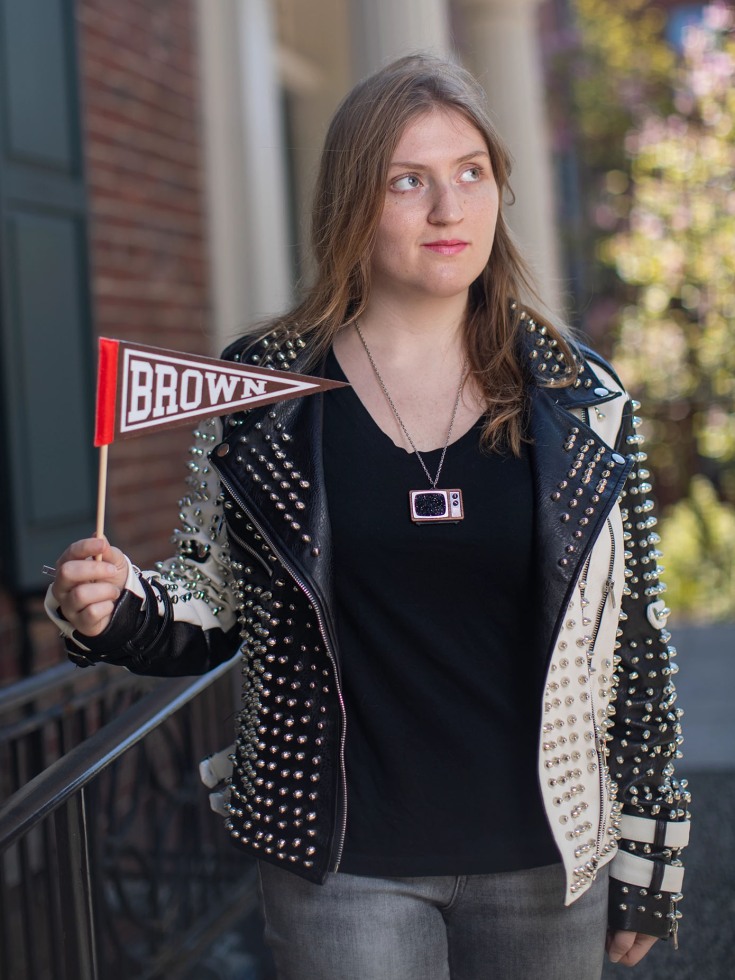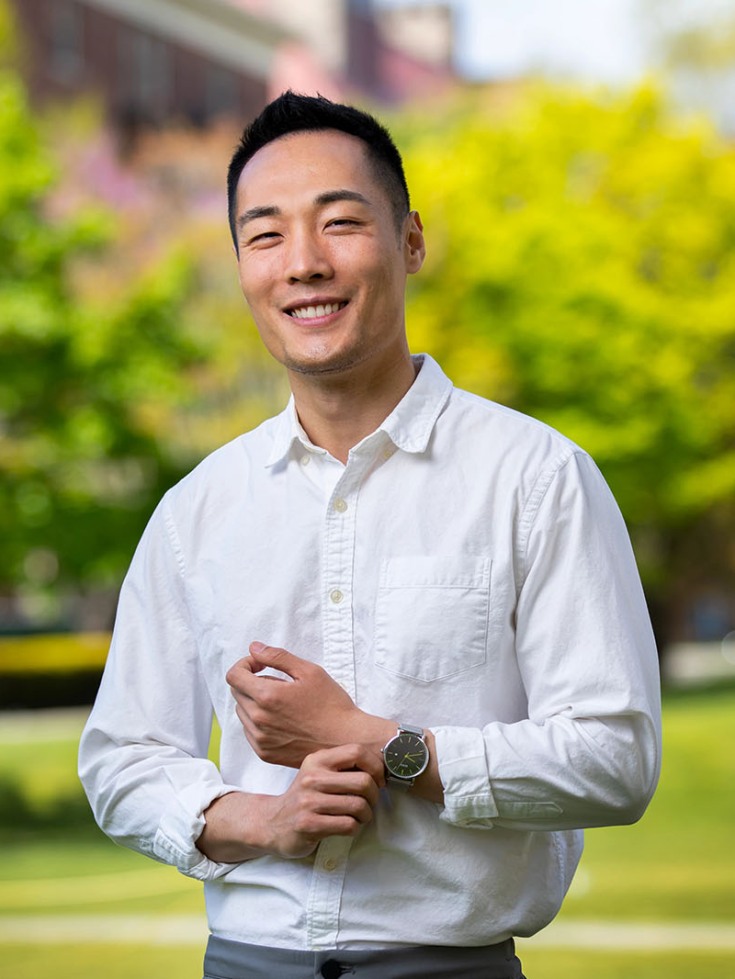PROVIDENCE, R.I. [Brown University] — On paper, Jiuyang Bai and Amelia Spalter could not be more different.
Bai, a Ph.D. student in cognitive science originally from China, came to Brown after his poster presentation at a conference impressed a University professor. Spalter, a Providence native, earned a bachelor’s degree from Brown in religious studies and loved the experience so much, she applied for a master’s. Bai is fascinated by the ways in which humans move and found community through swing dancing. Spalter is fascinated by cults and says there’s not a reality in which she won’t end up working as a television writer.
But for how disparate their lives and interests may seem, both know that the shared experience of earning graduate degrees as members of Brown’s Class of 2022 connects them in more ways than they can imagine — a theme they’ll each explore as they deliver addresses during the Graduate School’s doctoral and master’s degree Commencement ceremonies on Sunday, May 29.
In keeping with the University’s longstanding tradition of elevating student voices at Commencement, the Graduate Student Council voted for Bai and Spalter as this year’s speakers after hearing from several finalists selected by the GSC Nominations Committee. Both speakers will express the importance of embracing change and the vulnerability required to do so successfully.
“I have to admit that it was a tough job trying to narrow it down,” said Teressa Chambers, a doctoral student who chairs the council’s nominations committee. “But one thing the committee really takes into account is the originality and distinctiveness of the speech. Amelia’s had the kind of spark and humor to it that you only run into once in a great while, and Jiuyang’s was so genuine — very relatable and very warm.
“They captivated us in completely different ways.”
Freedom to explore
Nowhere has Spalter learned more than at Brown, “but Google is a close second,” she said.
As such, her master’s ceremony address in Meehan Auditorium will examine three things she’s Googled during her time in graduate school — practical, useful things that everyone should know, but also metaphors for the broader themes that she says will be on everyone’s mind as they’re graduating.
“Graduation days are such an ephemeral concept in that it's so much about the individual while at the same time being such a wholly communal experience,” Spalter said. “I want everyone to be able to feel that as they look around and think, ‘These are my classmates and we're forever connected, even if I've never met them.’”
Spalter started her undergraduate career as a Brown-RISD dual degree student studying film and screenwriting. But after attending a premiere of the Paramount television miniseries “Waco” — which chronicles the 1993 standoff between the federal government and the religious movement the Branch Davidians in Waco, Texas — Spalter was struck by the show’s ability to impart religious literacy. She always wanted to be a television writer, but all of a sudden, she said, she knew why.
Within two days of the premiere, she had left the dual degree program and began work toward a bachelor’s degree in religious studies at Brown, eventually taking the Fifth-Year Master’s option to earn her graduate degree.


